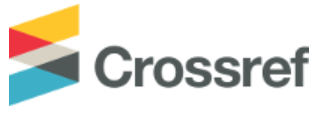Mathematics Self-Efficacy Scale Based on Computer
Abstract
Keywords
Full Text:
PDFReferences
Bonne, L. (2016). New Zealand students’ mathematics-related beliefs and attitudes: Recent evidence. New Zealand Journal of Educational Studies. doi:http://dx.doi.org/10.1007/s40841-016- 0035-2
Mullis, I. V. S., et al. (2016). TIMSS 2015 international results in mathematics. Chestnut Hill, MA: TIMSS & PIRLS International Study Center.
OECD. (2016). PISA 2015 results: Ready to learn – Students’ engagement, drive, and self-beliefs, Volume III. Paris: OECD Publishing.
Reiser, R.A., & Dempsey, J. V (2007). Trends and issues in instructional design and technology, 2nd ed. New Jersey: Pearson Education, Inc.
Sukoco, H., & Kholifa, I. (2016). Pengembangan skala mathematics self-efficacy untuk jenjang SMA sebagai predictor hasil ujian nasional matematika siswa tahun 2016. Laporan Penelitian, tidak diterbitkan, UMBY.
Sukoco, H., Khuzaini, N., & Wismono, A. (2017). Pengaruh Mathematics Self-Efficacy (MSE) terhadap hasil dari Ujian Nasional matematika siswa. AdMathEdu, 7(2), 119-132. doi:http://dx.doi.org/10.12928/admathedu.v7i2.9153
Sukoco, H., & Mahmudi, A. (2016). Pengaruh pendekatan brain-based learning terhadap kemampuan komunikasi matematis dan self-efficacy siswa SMA. Pythagoras: Jurnal Pendidikan Matematika, 11(1), 11-24. doi:http://dx.doi.org/10.21831/pg.v11i1.9678
Sukoco, H., Wismono, A., & Rusmilah. (2018). Skala mathematics self-efficacy untuk jenjang SMA (Mathematics self-efficacy for Senior High School/MSESc). Prosiding Seminar Nasional Pendidikan Matematika Etnomatnesia, 1(1), 752-760.
DOI: https://doi.org/10.31002/ijome.v2i1.1248
Refbacks
- There are currently no refbacks.
Copyright (c) 2019 Indonesian Journal of Mathematics Education

This work is licensed under a Creative Commons Attribution-NonCommercial-ShareAlike 4.0 International License.

This work is licensed under a Creative Commons Attribution-NonCommercial-ShareAlike 4.0 International License.
Indexed by:
ISSN: 2654-3907 (print) | 2654-346X (online)
Jalan Kapten Suparman No.39, Magelang, Jawa Tengah, Indonesia 56116
Phone (0293) 364113 Fax. (0293) 362438
Website : http://jurnal.untidar.ac.id/index.php/ijome









